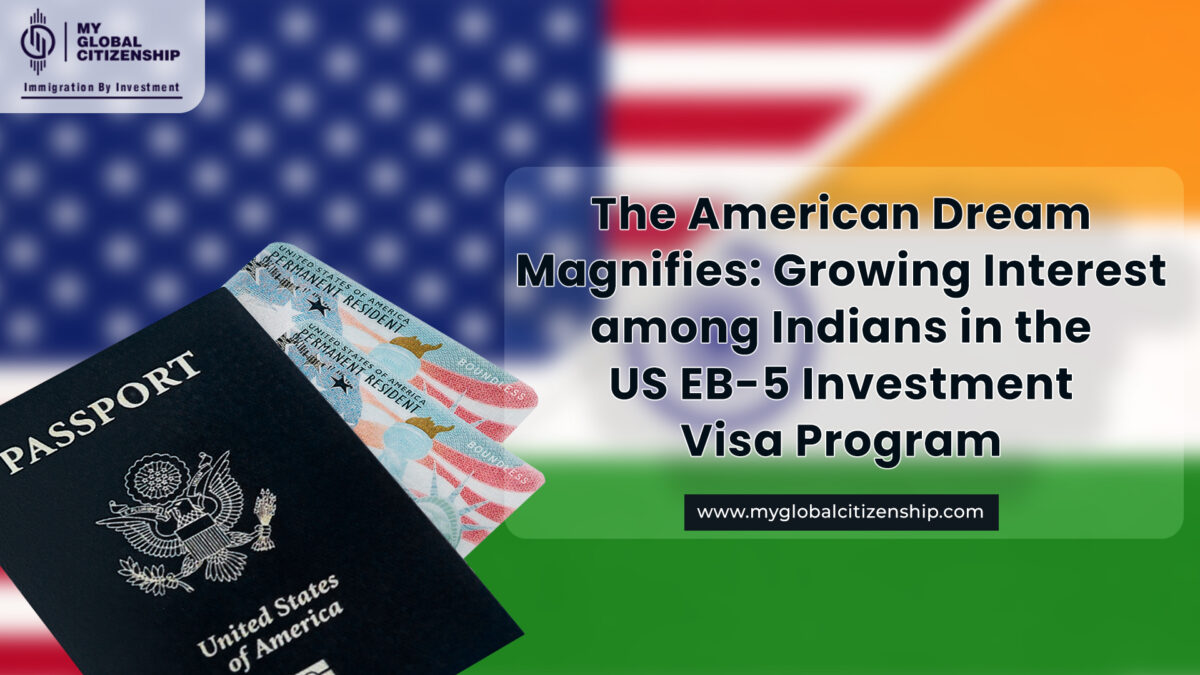The US EB-5 Visa program seeks to entice international capital into developed areas with high unemployment.
The United States is an attractive destination for business professionals due to its superpower status, economic growth, ample business opportunities, and equal rights and benefits for citizens. The EB-5 Visa program offers a way for foreign investors to obtain US permanent residency by investing in projects that create jobs in underemployed areas and developed regions. The program is open to eligible investors worldwide, including those from India, and has already granted visas to many Indian investors who have invested in real estate projects.
Features and Benefits of EB-5 VISA
1. There is no prerequisite for language skills either.
2. Be relatively quicker to process and have a seamless procedure.
3. Can become a citizen of the US by staying there as a permanent resident for at least five years.
4. They have access to government positions, cheaper tuition costs, healthcare financial help, freedom of movement, and social security benefits.
5. You can sponsor qualified family members to immigrate to the US and work there without any limits.
6. Partners and children under the age of 21 are also granted permanent residency in the US, which can be passed down through the generations.
Two different investment alternatives for EB-5 visas
1. Direct Investment: Investors have the option of making a direct investment or an investment in a US company worth up to USD 500,000 or USD 800,000, depending on whether the company is located in a Targeted Employment Area. Or invest $1.05 million into a company with a strong employment rate.
2. Regional Center Investment: In this case, the investor transfers the funds to a real estate or construction project that serves as a fund manager through a regional centre approved by the US. Various levels of return on investment are permitted for some low, medium, and high-risk projects. Candidates must pick their initiatives carefully.
Targeted Employment Area: Given the time commitment, it may either be a rural location or a place with significant unemployment (at least 150% of the national average). Any territory outside of a metropolitan statistical area (MSA) or inside the limits of a town or city with an estimated population of at least 20,000 is considered a rural area.
Eligibility Requirements for EB5 Visa
1. Invest $500,000 or $800,000 in a business that is situated in a high-unemployment region known as a Targeted Employment region. The project must be in a rural or high-unemployment area with an unemployment rate at least 150% higher than the national average to qualify for TEA funding. Outside of urban centres, the TEA region consists of cities and towns with a minimum population of 20,000.
2. The sum would be USD 1,050,000 if you invested in a company outside of the Targeted Employment Area (TEA).
3. Create at least 10 full-time, permanent jobs for qualified US citizens and residents.
4. The applicant must directly generate jobs for the firm outside the regional centre by taking on the role of employer for a new commercial operation or establishing owned subsidiaries.
5. Direct or indirect employment may be generated by the new business venture inside the regional hub.
6. Before investing, the “Immigrant Petition by Alien Entrepreneur” must be accepted using the 1-526 Form.
US EB-5 Detailed Application Process
1. Choosing an appropriate EB-5 Project: The initiatives might be for brand-new businesses or regional centres. The authorized investor income criteria for the EB-5 procedure must also be met.
2. Make an Investment and I-526 Petition: After deciding on a project and a company in the US, you must pay the required capital investment, agree to an escrow account, and submit an I-526 petition to USCIS.
3. Two-Year Conditional Permanent Residency: With the approval of the I-526 petition, you are qualified for two years of conditional residency in the US under the EB-5 visa application procedure.
4. Unconditional Permanent Residency and the I-829 Petition: Before the expiration of your conditional residence, you must file an I-829 petition to become a permanent resident of the United States. From the time the I-829 petition is filed, it takes between 22 and 45 months to receive a green card.
Conclusion
With the alluring US EB-5 Visa program, ignite your goals and take advantage of this once-in-a-lifetime chance. There are no restrictions or obstacles; only endless possibilities. A world of fortune in the country of dreams is yours to open when you join the ranks of successful Indian investors. The EB-5 Visa program invites you to take a fantastic trip to the United States with its simple application procedure, outstanding perks, and opportunity to build a brighter future. Take hold of your American dream right away.
For individuals interested in US citizenship or residency through investment, My Global Citizenship is a trusted immigration consulting firm. In addition to offering a truly global perspective on citizenship by investment and residency by investment, we have extensive knowledge of these programs. In addition to providing comprehensive services, we also assist our clients in selecting and applying for a second citizenship or residency. We also assist them in obtaining final approval for their second citizenship. We provide expert assistance and support at every stage of the process, ensuring a seamless transition.
If you still have any queries, connect with our team, and we will be more than happy to assist.

















